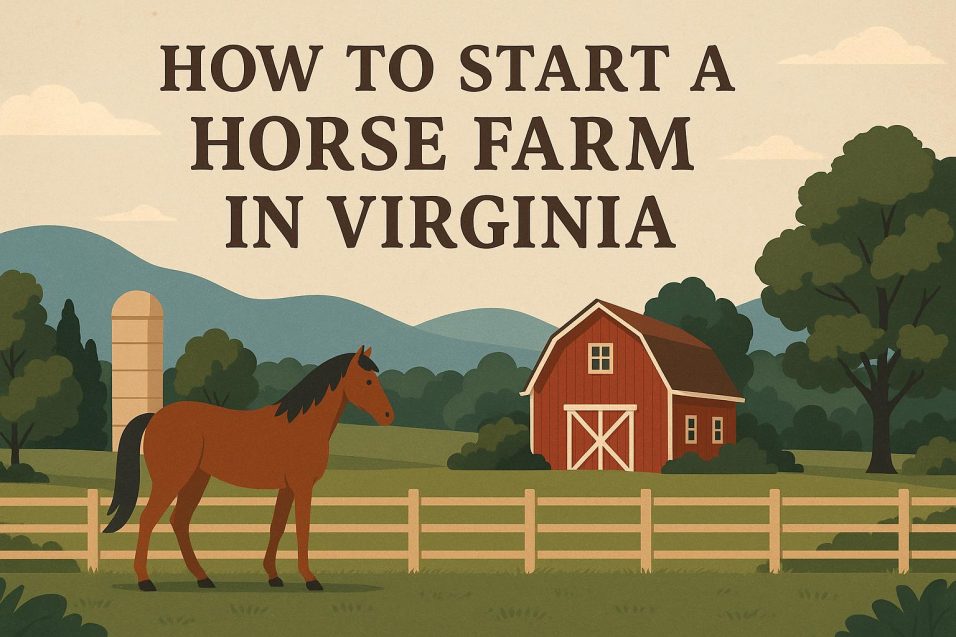Establishing a Vision and Business Plan
Beginning a new venture, like starting a horse farm in Virginia, necessitates not only enthusiasm and determination but meticulous planning and a well-defined vision. The initiation stage involves discerning the core purpose of your farm. Are you aiming to excel in breeding quality horses, focusing on providing top-notch boarding facilities, specializing in training horses for specific disciplines, or perhaps offering riding lessons that attract a diverse clientele? Each of these pathways demands a distinct approach and strategy.
Crafting a comprehensive business plan becomes an indispensable tool in this journey. Such a plan encapsulates your short-term and long-term objectives, pinpoints the target market, outlines effective marketing strategies, and includes detailed financial projections that highlight expected revenues and expenses. This strategic document will not only direct your decision-making processes but also prove pivotal in engaging potential investors or securing funds from lenders, reinforcing their confidence in your project’s viability.
Researching Zoning and Legal Requirements
In any agricultural venture, awareness and adherence to local regulations form the backbone of seamless operations, and Virginia is no exception. The state’s zoning laws and legal stipulations specifically applicable to agricultural entities, like horse farms, need careful scrutiny. Initially, it’s imperative to confirm that your chosen land meets the local zoning ordinances, precisely that it is categorized for agricultural purposes. Seeking advice from the local planning office or examining resources from the Virginia Department of Agriculture and Consumer Services can offer vital insights.
Moreover, the necessity of acquiring the required permits cannot be overstated. Comprehending liability laws pertinent to equine activities is equally crucial, as these regulations are crafted to preempt legal disputes and ensure operations remain within the legal framework. Ignoring these may lead to challenges that could jeopardize the stability of your business.
Selecting the Right Property
Property selection is a cornerstone decision in setting up a horse farm and demands an informed and thoughtful approach. The ideal land should cater to your operational needs with adequate space to support pastures, barns, and riding arenas. A careful analysis of factors like soil quality, efficient drainage, and reliable water resources is fundamental. Proximity to veterinary services and equine healthcare is also a critical consideration, guaranteeing swift assistance when needed.
Evaluating existing infrastructure, such as fences and road networks on the property, can significantly influence your initial expenditure. If you find this process daunting, collaborating with real estate experts who specialize in agricultural properties can prove beneficial, providing you with the insight needed to make a forward-thinking investment.
Developing Infrastructure and Facilities
With land acquisition completed, focus shifts to infrastructure development, a phase that shapes the functionality and efficiency of your horse farm. Constructing barns and stables equipped to house animals safely is an immediate necessity. These structures should not only offer adequate ventilation but also be crafted from horse-friendly materials to ensure the animals’ wellbeing.
Plan for additional essential facilities, which include storage areas for feed, equipment, and arenas designed for both training and recreational riding. Paddocks are indispensable for turnout, facilitating exercise and pasture time for horses. Investing in a reliable and strong fencing system is also critical, safeguarding your horses from potential dangers and escapes.
Acquiring Horses and Equipment
The physical readiness of your farm then transitions into stocking it with horses that align with your operational goals. Whether your focus is on breeding specific horse breeds or offering training in particular disciplines, partnering with established breeders is paramount to acquiring healthy and suitable horses.
Essential equipment must also be secured, covering everything from saddles and bridles to grooming supplies and maintenance tools. These components are vital to ensure smooth daily operations on the farm, allowing for efficient horse management and care.
Hiring Skilled Personnel
Navigating the complexities of running a horse farm requires the expertise of skilled personnel. Employing experienced farm managers ensures that administrative tasks and operational management are handled proficiently. The participation of trainers and stable hands is equally crucial, as they directly contribute to horse care and training quality. Prioritizing staff development through ongoing training opportunities will foster a knowledgeable workforce, directly influencing your farm’s success.
Implementing Sustainable Practices
Equipping your horse farm with sustainable practices ensures not only its long-term sustainability but also contributes positively to the environment. Employing methods like rotational grazing promotes pasture health by preventing overgrazing. Utilizing renewable energy sources, such as solar or wind energy, can reduce your carbon footprint, while efficient waste management systems mitigate environmental impact.
Furthermore, adopting these sustainable practices may yield financial benefits, including eligibility for tax incentives or grants supported by local government initiatives. These measures enhance your farm’s ecological footprint and can fortify your business against fluctuating market dynamics.
By meticulously adhering to these structured steps, while accommodating the unique aspects of your equestrian venture, you can establish a horse farm that thrives amidst Virginia’s beautiful landscape. This comprehensive approach lays the groundwork for a robust and resilient operation, capable of navigating the challenges and reaping the rewards of the agricultural industry.


